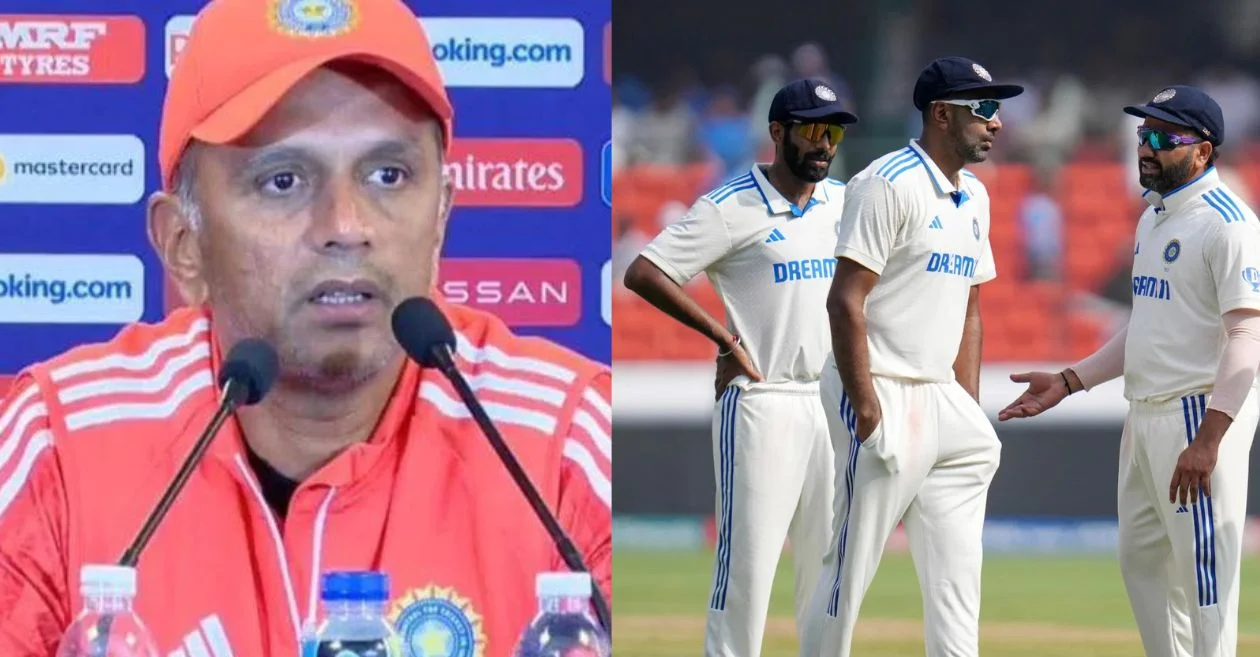Table of Contents
In a riveting first Test match at Hyderabad, India found themselves outplayed over the final two days, succumbing to a 28-run defeat against England on Sunday (January 28).
Ollie Pope’s brilliance leads to England’s remarkable turnaround
While Team India initially seized control with a substantial 190-run first-innings lead, they faced a remarkable turnaround in the face of innovative and attacking batting by England in their second innings. The visitors, led by Ollie Pope‘s brilliant 196, set India a challenging fourth-innings target of 231. Despite India’s valiant efforts, the hosts faltered and folded for 202 at the stroke of stumps on Day 4, trailing 1-0 in the five-game series.
Rahul Dravid exposes a critical error made by Team India
Head coach Rahul Dravid, in the post-match press conference, shed light on the factors contributing to India’s loss. He emphasized the team’s shortfall in runs during the second innings and acknowledged that they fell 70 runs short in the first essay.
“I thought we left probably 70 runs on the board in the first innings. You know, I think in our first innings, when conditions were pretty good to bat in on day two, I thought in the kinds of situations we got ourselves into, some good starts and we didn’t really capitalize,” Dravid said.
“We didn’t get a hundred, you know, we didn’t get somebody getting a really big hundred for us. So, in some ways, in India, I just felt we left those 70, and 80 runs back in the hut in the first innings. The second innings is always going to be challenging. It’s one of those things that, you know, it’s tough. It’s not easy to chase 230 or it’s not done very often,” the 51-year-old added.
Also READ: Twitter reactions: Ollie Pope’s 196 and Tom Hartley’s sensational 7-fer seals England’s victory over India in Hyderabad Test
Dravid defends young batters
Addressing concerns about the young Indian batters struggling on the Hyderabad wicket, Dravid defended them, attributing their challenges to a lack of exposure in first-class cricket due to a packed white-ball schedule.
“A lot of our players are young, and these guys play a lot of white-ball cricket, and they don’t get a lot of time to play first-class cricket. They are learning. It wasn’t a flat wicket by any stretch of imagination, and it turned through the course of the game. It was a challenging wicket, and it’s been a challenge for some of our young batters to adapt, but they are working hard, and they have the skill and ability,” the Indore-born cricketer reckoned.
They have come here by scoring a lot of runs in domestic cricket and doing well in A-team cricket, and they are picked of merit. It is not that we are picking people out of nowhere, and sometimes it takes a bit of time for people to adjust,” Dravid concluded.
As India reflects on the outcome of the first Test, the spotlight now shifts to the upcoming second game scheduled to commence in Vishakhapatnam on February 2.
